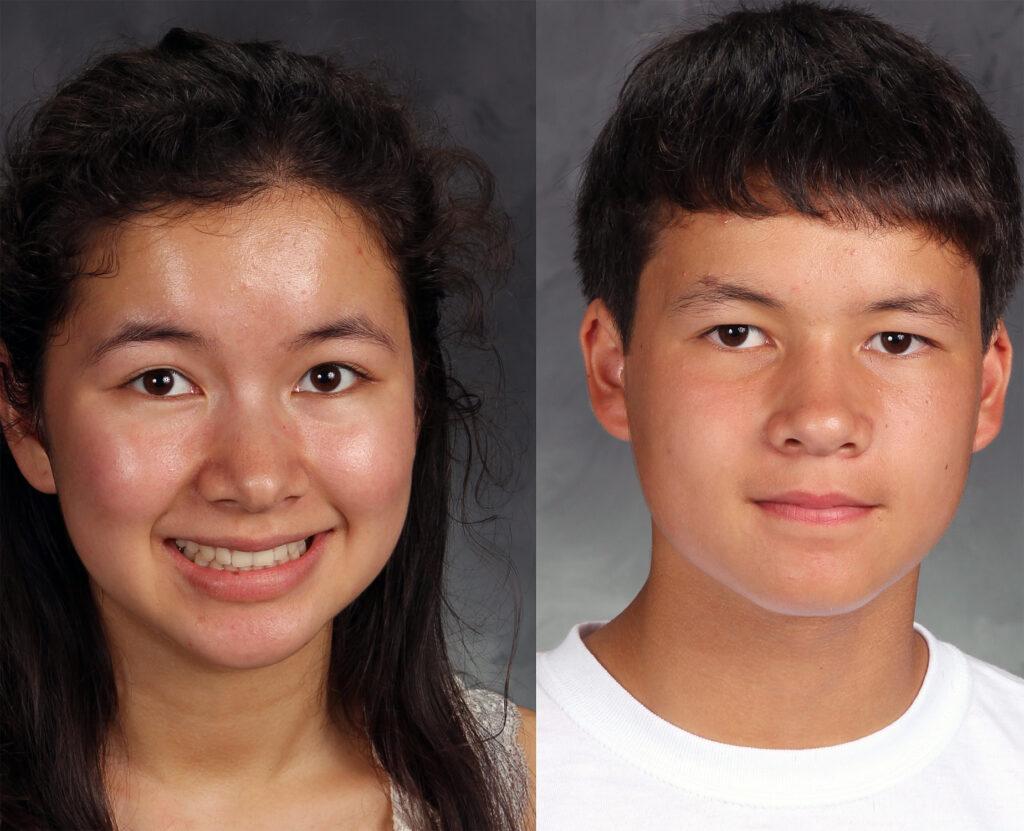Spitting cherry pits in the summer and celebrating Chinese New Year in the spring may come across as two traditions unlikely to be shared by one family, but not for sophomore Gloria Breck and her brother, freshman Samuel Breck.
Multicultural families have the chance to live the best of both worlds, and such is the case for these siblings. Gloria and Samuel are the children of a Chinese mother and Caucasian father from Michigan.
Samuel finds that his parents’ diversity opens his eyes to more cultures and therefore more traditions particular to each.
“You get to experience a lot more,” Samuel said. “You’re not narrowed down to just one culture.”
Gloria, too, said she loves being part of a family with a blend of two cultures. Like Samuel, she values the uniqueness of both and has favorite aspects of each one.
“My favorite part of being Chinese [is] the community,” Gloria said. “I actually loved going to Chinese school… [The] never-faltering Chinese people of Saratoga are my comfort because they take care of each other.”
Similarly, Samuel said he appreciates different aspects of the Chinese culture he and his sister are a part of.
“The Chinese side [of my family] has a lot of food,” Samuel said. “There’s a lot of events that normal white families would not have, like Chinese New Year.”
Furthermore, according to Gloria, she feels she fits in more with the Chinese part of her heritage than that of the Caucasian side.
“I definitely feel more Chinese,” Gloria said. “I speak Chinese at home and am surrounded by Asians every day.”
Nevertheless, Gloria does not believe that this isolates her from her Caucasian father and his culture.
“I see my dad as an Asian—he can speak and understand the [Chinese] language, and is quite submissive to my Tiger mom,” she joked.
This language, Gloria said, was one that her father picked up on mostly with the help of her mother, who can speak both English and Chinese.
“My dad learned most of his Chinese from my mom, because he had to cross the language barrier somehow… [but] to this day, communication problems abound,” Gloria said.
Often, though, Gloria said that the confusion is often over small things.
“[For example,] when my mom says to ‘I need a tower,’ my family knows she means a towel,” Breck said.
Still, Gloria said she also loves the traditions her dad brings to the table from his own heritage.
“My dad taught me to spit cherry pits very far like they do in the Michigan summertime,” Gloria said. “He was an American high school student at one point too, so we like to debate how times have changed.”
Yet as a result of their unique cultures, Gloria said her parents are not always in agreement.
“My parents often disagree on work ethics—my mom, as any immigrant who worked hard to arrive here would, has instilled her tiger-mama philosophy in my brother and me,” Breck said. “My dad reminds us to stop and breathe once in awhile.”
Despite her parents’ different approaches, Gloria said she never feels a culture clash.
“I never feel caught in the middle, because their two cultures have melted together into one, where the best values of both worlds exist,” Gloria said.
Unlike Gloria, Samuel feels that he does not identify with one culture any more than the other, but agrees that their two cultures have molded into one.
“I think of [my sister and me] as our own race,” Samuel said.
However, since he is biracial, Samuel finds he sometimes stands out more when he travels.
“When I go to places like China, a lot of people … say ‘Oh, it’s a mixie,’” Samuel said.
For Gloria, this is a benefit, as she finds that ultimately her diversity allows her to adapt more easily to different situations.
“Because I don't fit perfectly in any one group of people, I've learned to change myself to fit in every setting. At home, I receive an Asian and a Caucasian opinion on everything, and that has given me a balanced world view.”


























